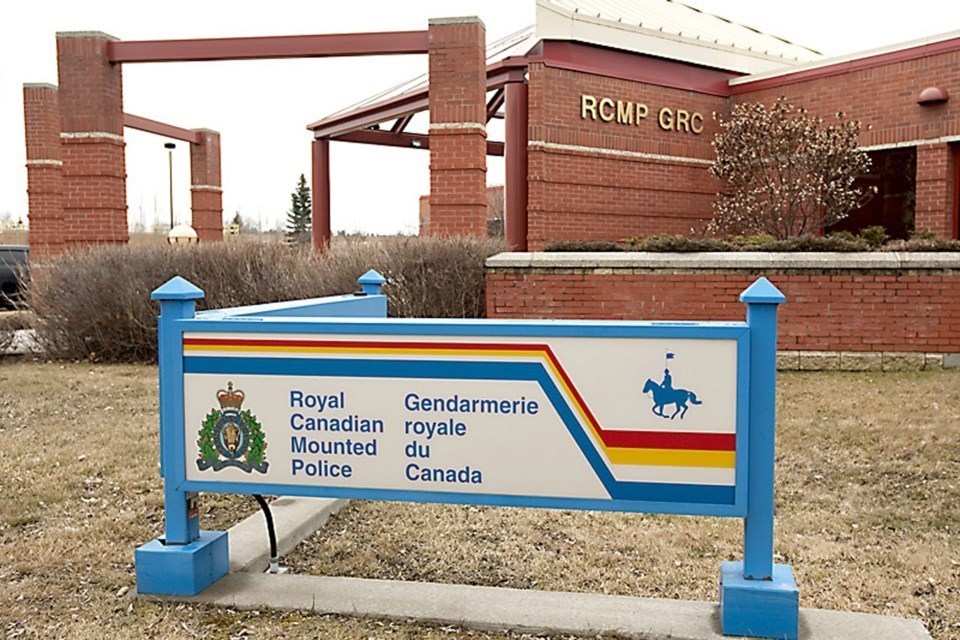St. Albert's policing committee is growing concerned that upcoming regulation changes being made by the provincial government will lead to the committee's local public complaints director position being eliminated.
Policing committee chair and resident Ian Sanderson, who spent 31 years working for the RCMP, said the committee's public complaints director position provides an important service that “we feel is important not to be taken away.”
The position, which is currently held by resident Kristin Kalmbach, serves as a starting point for those with concerns about the actions of on-duty RCMP officers. Those with concerns can contact Kalmbach by phone or email to discuss the issue and be advised about the different ways official complaints can be made and what options are available.
Kalmbach, as the public complaints director, does not investigate officer conduct complaints, although she can receive complaints and act as a liaison with the St. Albert RCMP detachment's commanding officer.
“We get two or three calls a month where somebody just wants to be heard,” explained Sanderson, who also currently serves as the board chair of the Alberta Association for Police Governance.
“The [position's] ability is to help someone who has a concern that maybe doesn't feel comfortable going to the police or to a larger agency to be heard, and then we can sort of navigate that into the process.”
Sanderson explained that the provincial government, through ongoing consultations relating to substantial amendments made to the Police Act in 2022, has “signalled” that the government is planning to remove the ability for policing committees and commissions throughout the province to have a public complaints director once the province's new Police Review Commission is established.
The establishment of a Police Review Commission was once such amendment to the Police Act in 2022, and it will be responsible for handling and investigating all complaints against police officers in the province, including the RCMP.
The consultation referred to above references a survey the provincial government has invited certain “stakeholders” to fill out. A “discussion guide” provided to Okotoks town council earlier this month about the survey includes multiples discussion questions about how policing committees should function moving forward.
“By not having that [local public complaints director] option, our concern is that people that may be hesitant to go to the local police or to a much larger agency, would lose that opportunity and therefore we're sort of losing that connection in the community of police hearing what the issues are.”
In an email, Ministry of Public Safety and Emergency Services press secretary Arthur Green said that the Police Act amendments mean that the public complaints director position will no longer be a legislated requirement, however, individual committees can choose to keep the position anyways.
“The position of public complaint director will no longer be a legislated requirement under the Police Act — the Police Review Commission will instead intake complaints directly and investigate allegations of misconduct,” Green said.
“If a community chooses to keep its public complaint director role, it would be to assist local citizens to bring their complaint forward to the Police Review Commission instead of to a local police service.”
Green also said that the new Police Review Commission will be operational by the end of 2025.
Insp. Ryan Comaniuk, the St. Albert RCMP detachment's commanding officer, said that he's heard repeatedly through policing committee members over the past three years that the public complaints director position “has proven an effective tool.”
“Transparency and accountability play an important role in policing in any community,” he said. “If the public complaints director position is erased, the public will have one less avenue available to voice their concerns to the [policing committee] and they would otherwise be directed to elevate their concerns elsewhere.”
Coun. Ken MacKay, who serves as the non-voting council member on St. Albert's policing committee and had a 30-plus year career in policing prior to serving as a city councillor, also said he thought having a local public complaints director was important.
“Having an independent and, in this case, a civilian community member listen to an individual's concern about the actions or non-actions of a police member can be very valuable,” MacKay said. “They can actually find a way to have these concerns that the resident raises taken quite seriously and dealt effectively without maybe even going through the system.”
The province's Police Act amendments in 2022 also allowed the government to appoint members to municipal policing commissions and committees, such as the two provincial appointments made to Edmonton's policing commission last summer.
The provincial government has not appointed anybody to St. Albert's policing committee, but MacKay did say he thought a provincial appointment to the local policing committee would be detrimental to the committee's “St. Albert home touch.”
“When they talk about changes, I always come back to like, 'what's the problem? What is the problem we're trying to address?'... but right now I'm just not clear on the why.”




